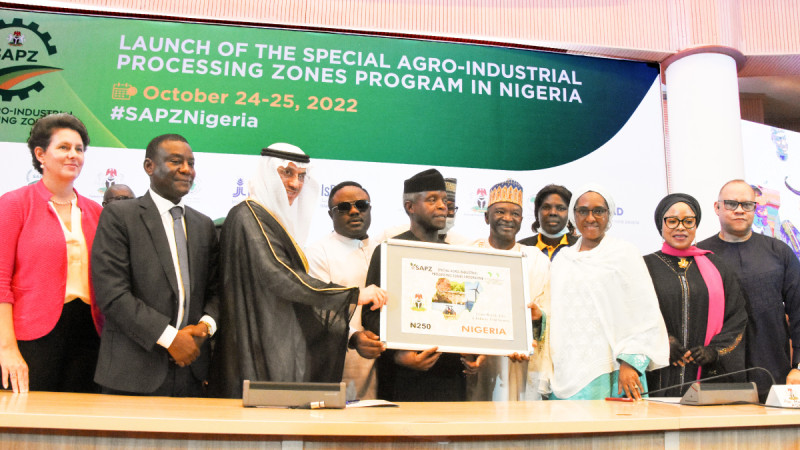The Federal Government of Nigeria and the International Fund for Agricultural Development (IFAD) have launched the second joint supervision mission of the Special Agro-Industrial Processing Zones (SAPZ) Programme, reaffirming their commitment to transforming Nigeria’s agricultural and agro-industrial sectors.
Speaking at the opening session in Abuja, IFAD Country Director for Nigeria, Mrs. Dede Ekoue, described the mission as an opportunity for reflection, recalibration, and renewed focus on strengthening SAPZ, a flagship initiative aligned with President Bola Tinubu’s Renewed Hope Agenda for agriculture.
Co-financed by the Federal Government, IFAD, the African Development Bank (AfDB), and the Islamic Development Bank (IsDB), the SAPZ programme aims to transform Nigeria’s food systems through agro-industrialisation, enterprise development, market integration, job creation, and rural prosperity. Ekoue provided an update on progress since the previous mission, revealing that 41,204 smallholder farmers and value chain actors have been profiled across Ogun and Kano states, adding to profiling exercises conducted in 2024 and 2025.
She noted that 14,655 farmers have received inputs, training, and digital tools, including climate advisory services. In total, 15,664 beneficiaries, comprising 9,353 men, 6,311 women, and 3,955 youth, have been supported under the programme. Women account for half of the profiled actors in Ogun, while youth represent nearly a quarter of those captured in Kano.
Ekoue highlighted progress under IFAD’s 4P (public–private–producer partnership) model, including the establishment of the Multistakeholder Agribusiness Forum (MAF) and the signing of 24 Memoranda of Understanding connecting cassava, rice, tomato, and groundnut farmers to guaranteed offtakers. “These partnerships are helping to reduce commercialization risks, strengthen market access, and safeguard farmers’ incomes,” she said.
The programme also advances gender and nutrition initiatives through household engagements and food demonstrations targeting women. Under IFAD’s Digital Innovation Action Plan, digital tools have been deployed to support climate-smart agriculture, providing digital climate information services to nearly 16,000 farmers and processors, while all profiling and geospatial mapping activities are now fully digitised.










